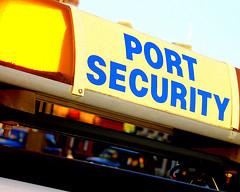 Improvements in security systems live some of the most uncertain of our recent history moments. This is moved to different areas, but one of the most alarming is that refers to security. The insecurity is a fact. Nor is no reason to panic, but it is clear that any business or any home needs to have security systems so that unwanted events do not occur. These security systems have evolved over time, in the same way that there has been an evolution in theft systems. The locks are much safer than before, and almost everyone has a more or less protected door in the entrance of his house. Similarly, the alarms are no longer limited to an acoustic signal, are now connected with services of private monitoring that can themselves at our home in a matter of a few minutes.
Improvements in security systems live some of the most uncertain of our recent history moments. This is moved to different areas, but one of the most alarming is that refers to security. The insecurity is a fact. Nor is no reason to panic, but it is clear that any business or any home needs to have security systems so that unwanted events do not occur. These security systems have evolved over time, in the same way that there has been an evolution in theft systems. The locks are much safer than before, and almost everyone has a more or less protected door in the entrance of his house. Similarly, the alarms are no longer limited to an acoustic signal, are now connected with services of private monitoring that can themselves at our home in a matter of a few minutes.
Home Security: alarms beyond locks, security doors and other protective mechanisms, the alarms have a great credit within systems security of the home. It is logical. They are reliable, accurate, and little given to failing. Let’s see how they work. As a general rule, an alarm has at least three parts: central, keyboard and sensors. The central part, as its own name allures to, is something like the brain of the device. It coordinates all signals, both input and output, and is that the Auxiliary battery, so that in case of electric suspension alarm can continue to operate. It is not difficult to imagine the keyboard function: through the program the alarm and also has a panic button, to indicate to whom it may concern in case of immediate need. Finally there are sensors that report to the central unit any suspicious abnormality.
 -Academic field: Structures, plans and programmes in the academies of Spanish in Spain and Spanish university education have undergone major adaptations, whose impact on the European education area (EHEA) evidenced an enrichment in the impact and dissemination of the Spanish language, now present throughout the European Community in the fields of knowledge taught in the areas of Arts and HumanitiesExperimental sciences, health sciences, social sciences and law, engineering and architecture. -Economic sphere: Since the last decades of the twentieth century, Latin America It has experienced a large boom, interacting in global trade associations, with recognized success. The creation of the MERCOSUR and the free trade agreements between Latin American countries and North America – ALADI, the Andean Community, CACM, NAFTA, G3 – have increased not only the Latin American economies, they have enabled the reevaluation of the Hispanic aspects, especially those who say relationship with the Spanish language and culture in Spain. -Business: Probably, due to the strengthening and roots that the Spanish are experiencing in geographical areas of major development and business influence and territories, has become part of a vital linguistic platform within the context of the stock exchange relations and treatment protocol own commercial interactions. -Diplomatic arena: The Spanish in addition to being the second most used in international communication language, within the framework of the diplomacy, constitutes one of the six languages officials of the UN, and therefore used by their numerous organizations around the world. -Social sphere: The multilingual and multicultural character that gradually radiates, throughout the world regardless of a trend of globalization – generates a wide demand for interest in the studies of the most important languages, giving priority to the study of the Spanish, as a linguistic universal need in all areas of life of modern human beings. This feature has helped to know the Spanish language, under the concept of: Spanish for daily life an essential learning experience.
-Academic field: Structures, plans and programmes in the academies of Spanish in Spain and Spanish university education have undergone major adaptations, whose impact on the European education area (EHEA) evidenced an enrichment in the impact and dissemination of the Spanish language, now present throughout the European Community in the fields of knowledge taught in the areas of Arts and HumanitiesExperimental sciences, health sciences, social sciences and law, engineering and architecture. -Economic sphere: Since the last decades of the twentieth century, Latin America It has experienced a large boom, interacting in global trade associations, with recognized success. The creation of the MERCOSUR and the free trade agreements between Latin American countries and North America – ALADI, the Andean Community, CACM, NAFTA, G3 – have increased not only the Latin American economies, they have enabled the reevaluation of the Hispanic aspects, especially those who say relationship with the Spanish language and culture in Spain. -Business: Probably, due to the strengthening and roots that the Spanish are experiencing in geographical areas of major development and business influence and territories, has become part of a vital linguistic platform within the context of the stock exchange relations and treatment protocol own commercial interactions. -Diplomatic arena: The Spanish in addition to being the second most used in international communication language, within the framework of the diplomacy, constitutes one of the six languages officials of the UN, and therefore used by their numerous organizations around the world. -Social sphere: The multilingual and multicultural character that gradually radiates, throughout the world regardless of a trend of globalization – generates a wide demand for interest in the studies of the most important languages, giving priority to the study of the Spanish, as a linguistic universal need in all areas of life of modern human beings. This feature has helped to know the Spanish language, under the concept of: Spanish for daily life an essential learning experience.